
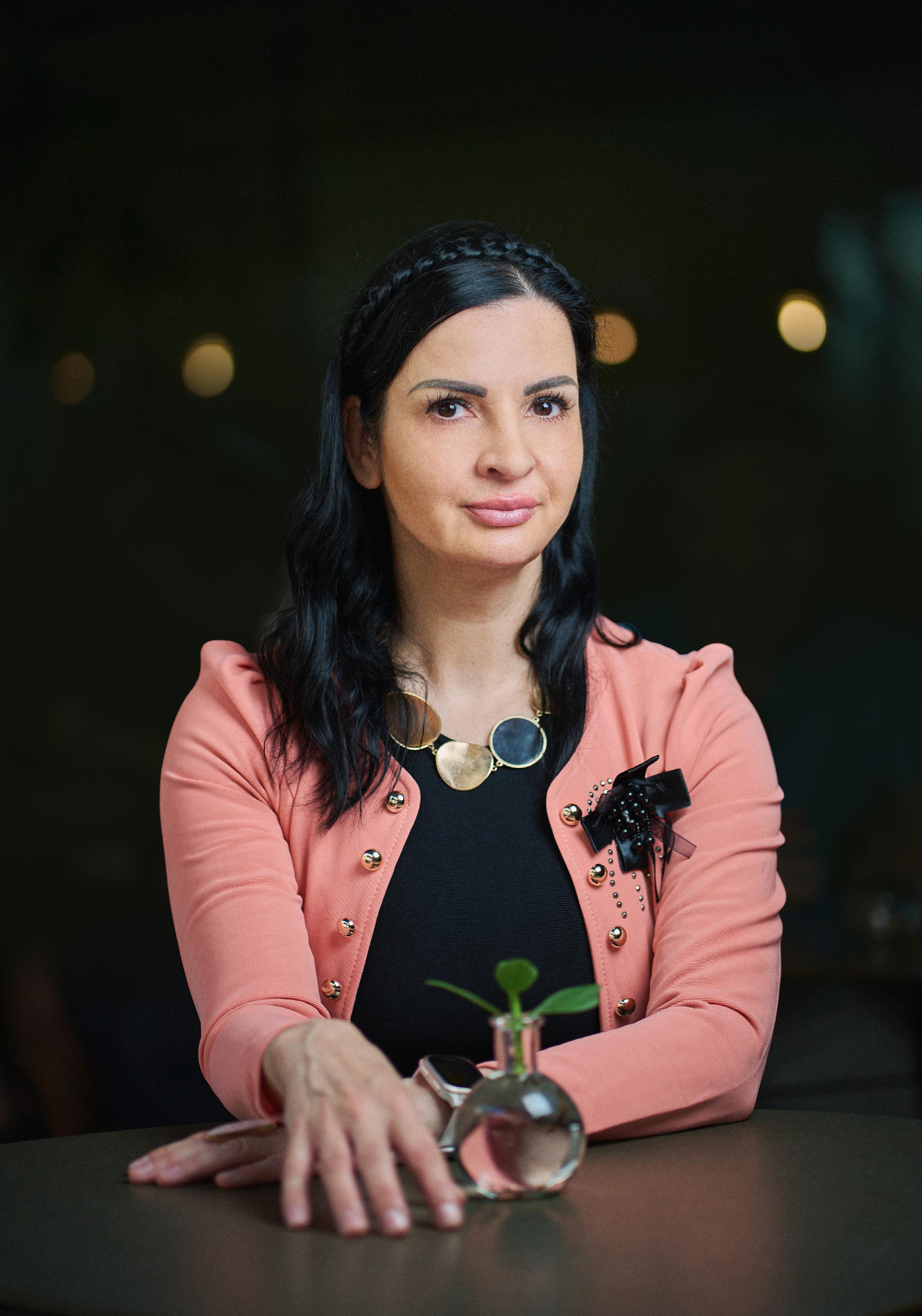



































Do you ever get the feeling that everything is changing rapidly and it’s a continual struggle to keep up? If you answered yes, do not worry. You’re certainly not alone.
Welcome to the inaugural edition of Affiliate Leaders, a brand new publication from SBC, produced specially for the eponymous community.
This issue, we are tackling head on the alarming issues surrounding Google’s updates, the upheaval they have created in 2024, and how SEOs should respond to these urgent matters. Medier Agency SEO Director Ivana Flynn has written a guide to these changes and outlined how to overcome the issues that have arisen because of them.
Talking of rapid evolution, we also discuss the increasing involvement of AI in affiliation. Is AI really good for content and how can it best be leveraged to improve operational efficiencies? Affiliate experts such as Deirdre Savage, Martyn Hannah and Maja Jovancevic weigh in with their thoughts on all of those developments.
It’s not that everything is changing for the worse, though, nor is it always a scary future. Looking to a brighter horizon, we chat to Floris Assies, Founder
of Better World Casinos, who discusses how affiliate marketing and the whole iGaming sector can make an impact from an ESG perspective.
Richard Dennys, Game Lounge’s new CEO, chats all things tracking data, while we also delve into regulatory debates. Should affiliates be licensed around the world? Just how do affiliates navigate tough regulatory environments? Jai Maw of Betting Hero and others help us understand these discussions.
There’s plenty more content to delve into in this, the first issue of Affiliate Leaders. Here at SBC, we are committed to the community we have built with affiliates and want to bring more value to our members.
If you are reading this, there is a strong likelihood that you are at the Affiliate Leaders Summit, which makes up part of SBC Summit in Lisbon. If you are one of the 5,000 Affiliate Leaders attendees, or one of 25,000 at the wider summit, on behalf of everyone at SBC, I’d like to extend the warmest welcome.
Please come and say hello!
Charlie Horner
Affiliate Leaders is brought to you by SBCSports Betting Community.
Editor Charlie Horner
Editorial Team
Andrew McCarron, Martyn Elliott, Chris Murphy, Craig Davies, Jessica Welman, Joe Streeter, Ted Menmuir, Ted Orme-Claye, Lucía Gando, Conor Porter, Viktor Kayed, Callum Williams, Danny Lee, Jessie Sale, Fernando Noodt, Isadora Marcante, Elisa Marcante, Justin Byers, Tom Nightingale, Kieran O’Connor.
Sales Team
Rasmus Sojmark, John Cook, Alyona Gromova, Conall McCabe, Jan Kowalczyk, Richard Deacon, Bob McFarland, Craig Brown, Ed Young.
Creative Lead/Design & Layout
Jessica Camilleri
06 08 12 16
The Affiliate Leaders team provide an update, with all the latest developments from the community and hint at further enhancements.
Medier Agency SEO Director Ivana Flynn breaks down a turbulent year which has seen multiple Google updates which have upended the affiliate space.
Google’s Search Generative Experience rollout has caused plenty of controversy among affiliates. Deirdre Savage, Head of SEO at Time2Play explains why.
Complying with Google’s principles when it comes to displaying authority and expertise is essential for success going forward. Affiliate Leaders examines how best to rank higher with EEAT content.
Produced and published by Sports Betting Community Ltd: Registered address: SBC, Riverbank House, 1 Putney Bridge Approach, London, SW6 3JD Tel: +44 (0) 161 367 1250. Email: sales@sbcgaming.com. Web: www.sbcgaming.com For daily news relating to the Affiliate Leaders please visit AffiliateLeaders.com. 32 54 60 64

GameLounge’s CEO Richard Dennys tells Affiliate Leaders about his entry into the iGaming industry and why tracking could be lacking.
Better Collective outlines its approach to mergers and acquisitions after making over 30 deals in recent years.
TAG Media CEO Tom Galanis and Already Media CEO Alina Famenok explain their respective approaches to revenue models and explain whether hybrid is the future?
What does it mean to be a global affiliate?
Clever Advertising talks through its approach to maintaining a positive workplace culture across its global operations

All material is strictly copyrighted and all rights are reserved. No part of this publication may be reproduced in whole or in part without the written permission of Sports Betting Community Ltd. Although every effort has been made to ensure the accuracy of the information contained in this publication, Sports Betting Community Ltd cannot be held responsible for any errors it may contain. Sports Betting Community Ltd cannot be held responsible for the loss or damage of any material, solicited or unsolicited. The views of the publication are not necessarily the views of Sports Betting Community Ltd or those of the advertisers.



When SBC established the Affiliate Leaders community in 2021, we had one clear aim. We wanted to provide affiliates with a safe space to connect, share ideas and best practices. Since then, the Affiliate Leaders community has grown exponentially and will culminate in Lisbon with the Affiliate Leaders Summit, boasting over 14,000 square metres of floor space full to the brim of operators and affiliate programs ready to do business.
Over 5,000 attendees are expected at the Feira Internacional de Lisboa specifically to attend the Affiliate Leaders Summit, dedicated to this community and ensuring top-class networking opportunities for affiliates and operators alike. We encourage you to really lean into the space and exhibition hall as those operators are attending to meet you! Make sure you are seen.
But while the Affiliate Leaders Summit reflects our intense dedication to the community, our actions don’t end there. We are constantly looking for ways to keep providing more value for our affiliate community all year round.
Affiliate Leaders members can benefit from everything that SBC has to offer on both our media and events business - if you choose to make the most of the membership. With all of the support and guidance from the community all year round, it would be remiss of you not to get involved - even without the additional benefits.
By engaging with the community and our Affiliate Relationships team, you can get access to our media channels where we can help facilitate your message to a wide industry audience. Meanwhile, on the event side, Affiliate Leaders members can get access to key people at the SBC portfolio of global trade events.
In the near future, you can expect to see the launch of a brand new platform dedicated to the Affiliate Leaders community where there will be opportunities to connect with fellow
affiliates to share ideas. Growing with us here at Affiliate Leaders, you will be able to access a safe space for your ideas with instant messaging capabilities and community-led posting options.
Whether chatting about preferred payment processors, having regulatory debates or simply venting about the latest Google update, Affiliate Leaders will facilitate the conversation for all members to thrive.
And when we say all members, we truly mean it. The Affiliate Leaders community is not a closed shop for just the big players in the space. Affiliates of all shapes and sizes are welcome to join the community, whether a giant of the industry or a new start up seeking guidance and advice on how to grow.
At SBC, we are committed to the affiliate space which is why we have created and fostered this community. But we are looking to take it to the next level. And the onus is on you to get involved and make the most of the opportunities available through the community.
Because the truth is, with your support and input, we can curate better agendas at our events which attract bigger names. We can then facilitate your conversations with high profile operators and executives, ensuring your growth with the Affiliate Leaders community.
We truly hope that you make the most of this opportunity to be a part of this community and engage with our events, particularly our inaugural Affiliate Leaders Summit. Please stay tuned and keep connected with us here at the SBC Affiliate Relationships team for all the latest developments and innovations from the community.
Kindest regards,
Julian Pitts Brendon Spiteri
Julian Pitts and Brendon Spiteri
Medier Agency SEO Director Ivana Flynn analyses the disruptive Google core updates throughout 2024 and highlights who the big winners and losers will be.
Words by - IVANA FLYNN -
will go down as a historic year for the
SEO space. This year marked the biggest SEO update in Google’s history which has resulted in instability, clean up, the continuation of Google’s war on AI content abuse, Parasite SEO, Google leaks and, of course, an almighty AI overview mess…
Where to start?

OK, firstly, the March 2024 Google spam update - what and why?
Early this year, in March 2024, Google released a massive update which originally aimed to fight spam on the web. Primarily, this update targeted poor quality AI content that didn’t respect HCU and links on expired domains, mainly on PBNs and link farms. Additionally, Google announced a fight against Parasite SEO as well known site reputation abuse.
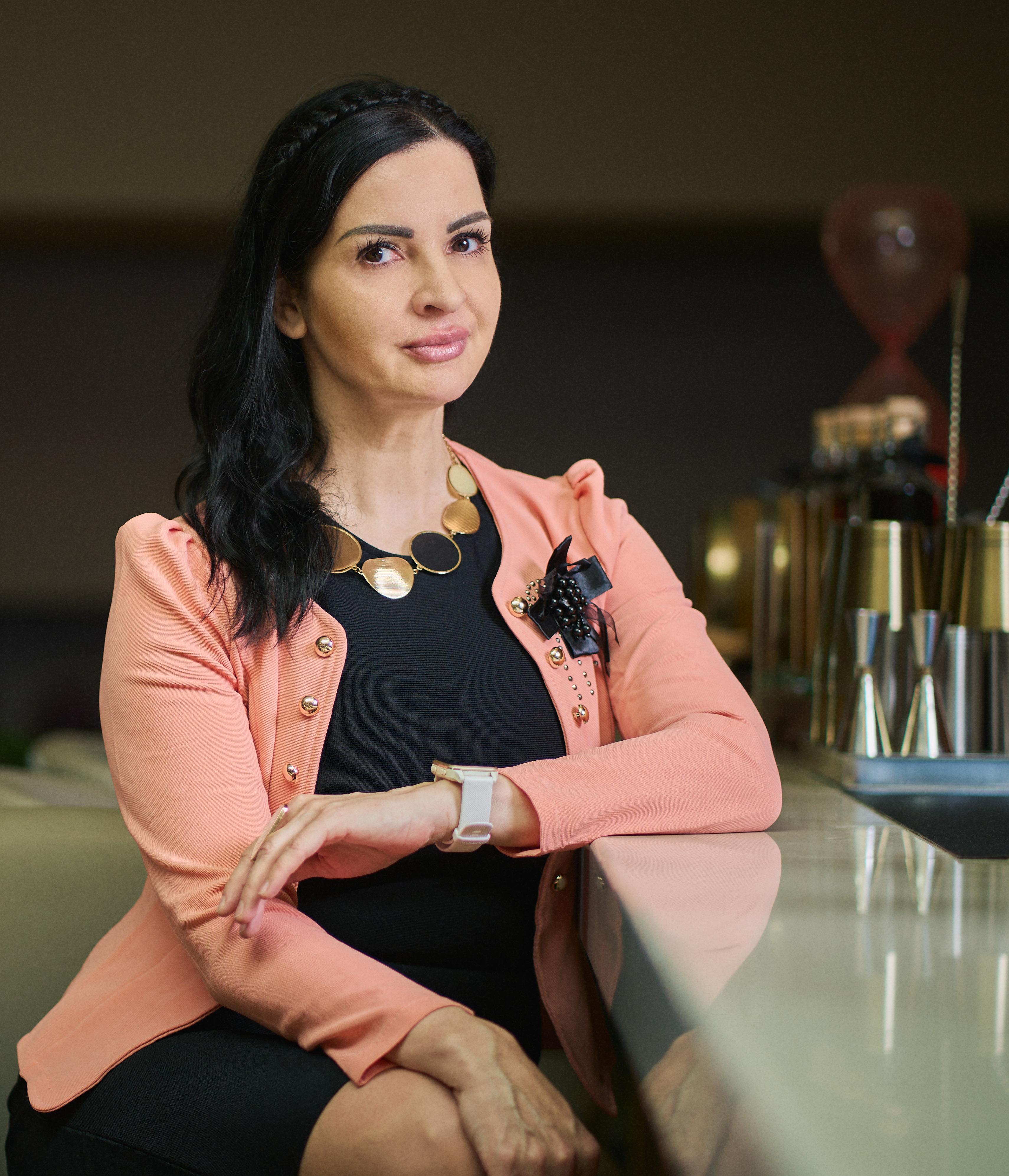
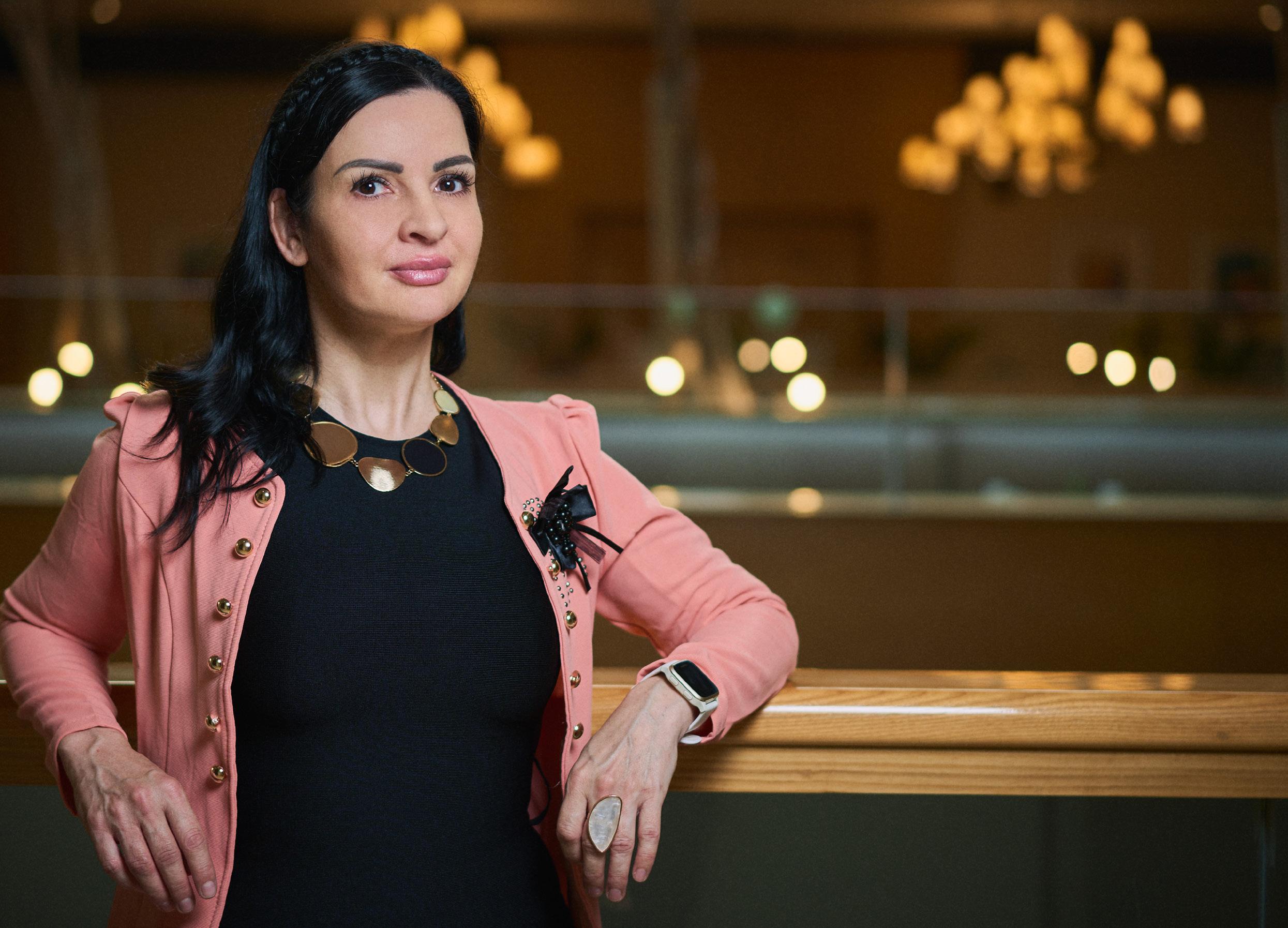
The core March update had ushered in a period of unprecedented volatility of rankings
Well, to put it bluntly, SEOs have overdone it in recent times! As a result, Google announced that AI content is acceptable, within certain parameters - for example, AI can be used for research, websites using AI content must announce it on their pages, etc). The update occurred because SEOs simply went Wild-Wild-West mode and abused AI content creation and automation to the point that the internet was utterly flooded by spammy content with little to no value.
Once Google released this update, many websites were deranked or completely deindexed.
In my research following the updates, I found that 43% of people saw a bigger decrease for newer, younger websites compared to those older, more
established websites, regardless of usage of AI content. Of great significance to Affiliate Leaders, it certainly appears that affiliate websites have been severely impacted compared to operators.
In making the updates, Google gave a clear signal that it prefers bigger brands, older websites and user metrics such as new and returning traffic, duel time and customers’ journey on the website became more important.
May Site Reputation abuse update:
The core March update had ushered in a period of unprecedented volatility of rankings until around the end of April. The impact on those affected was profound, while those unaffected could almost breathe a sigh of relief. But once they thought they were safe, Google declared war on Parasite SEO on 5th May.
Parasite SEO, in recent years, has indeed become a very much ‘used and abused’ practice by SEO professionals across almost all niches - casino, betting and coupons leading the way, but, of course, cosmetics, medical supplements and services have used these shady practices as well.
The issue became apparent as parasite SEO practices created a mess of the SERPs, therefore dragging down the quality of results. Quality results stopped being shown in dominant positions in favour of useless links. In my research, I saw a parasite SEO post in an online magazine outranking Casino.org, a 27 year-old website that has provided quality content for years, for online casino operator, KW.
Parasite SEO can be done in three different ways: in a post - which we have already outlined, essentially publishing an article with affiliate links and with a bit of work outranking big and quality websites;
On subdomain - overused for coupons, such as https:// coupons.cnn.com/ (but for casino as well https:// jackpot.rtl.de/);
And, of course, in a subfolder - which is basically artificially adding a subfolder to a strong website which can work if done properly.
Many of the big affiliates such as Gentoo Media (formerly GiG), Finixio (now ClickOut Media) or Find. co are still using these practices. Some are very successful, some less so.
However, Google has said “enough” and started to fight this phenomenon by giving manual penalties. Consequently, we saw many changes from a drop in traffic to complete removal of posts or subdomains.
Lightning, they say, never strikes twice. Well, that has proven correct - it has struck thrice as Google recently revealed: ‘We released the June 2024 spam update. It may take up to one week to complete, and we’ll post on the Google Search Status Dashboard when the rollout is done.’
This update is once again cleaning up websites that are violating spam policies and targets on-page policies and does not target links-spam or site reputation. So, basically, the rest of AI abuse is under fire now.
But let’s be honest, Google fights spam regularly and this is not a surprise. Thankfully, this update will not be as violent as the March one.
Based on the year so far, we can predict with a high level of certainty that Google will keep rolling updates trying to clean up low quality results. So the rest of the year can be called SEO’s certainty of uncertainty!
As many of you know Google has finally released AI Overviews, previously called SGE, from Beta-version to public use in the US - it was a failure.
We saw many recommendations in the AI overviews, from fun results, to life threatening recommendations such as encouraging people to drink urine daily to pass kidney stones, to adding glue to pizza sauce, to taking a relaxing bath with a toaster.
Naturally, the general public was shocked and SEOs outraged!
After a few weeks of these issues, Google rolled back on how often the AI overviews were shown. In general, the number dropped from 17% to only 2.5%, a different drop was seen for different queries.
During the mess up, Google confirmed the legitimacy of the leaked data.
The main learnings from the leaked data are as follows:
• There are 2,596 modules represented in the API documentation with 14,014 attributes
• Traffic is important and is a ranking signal
• It was confirmed that links were important, are important and will be important for growing and ranking your websites
• Brand matters
• Entities matter
• SiteAuthority
• Chrome data. A module called ChromeInTotal indicates that Google uses data from its Chrome browser for ranking.
Most of the data was already leaked in November 2023 during the antitrust lawsuit, so not much more new was revealed. Still, there are some interesting points that can be adapted to your SEO strategy.
But overall, we can conclude that building a brand is essential in the new AI era, that protecting your brand is a good and healthy practice.
If you are practising Parasite SEO, make sure to diversify your strategy as Google is after you! And lastly, don’t get comfortable and stop learning as Google keeps changing the rules of the game!




Google’s AI Overview has caused a real stir in SEO circles recently. Affiliate Leaders leans into the expertise of Deirdre Savage, Head of SEO at Time2Play Media, to understand how affiliates navigate this threat.
Words by - DANNY LEE -
enerative AI has taken the world by storm in the past 12 months. From gaining insights and constructing articulate text through Chat-GPT to crafting imaginative characters and landscapes with Midjourney, the tech has cemented its influence on an array of daily practices within most, if not all, industries.
Although tech firms have been finding ways to utilise AI for decades, GenAI’s recent leap into the mainstream has presented firms like Apple, Microsoft and Amazon with the challenge of not-only utilising AI tech themselves, but enhancing the consumer experience with unique innovations that showcase its true power.
In one development that has shaken up the affiliate marketing scene, with a particular impact on the SEO community, Google launched its AI Overview tool earlier this year.



If it was another website, we’d likely submit a takedown request



The tool aims to streamline the searcher’s experience, using Generative AI to present formulated answers at the top of the search engine results page and summarise key takeaways from any articles presented.
While this may seem beneficial for the searcher, there are concerns that placing an AI-generated prompt at the top of every search will reduce the need to click-through links and visit individual pages.
Detailing the gravitas of the concern within affiliate businesses, Affiliate Leaders spoke with Dierdre Savage, Head of SEO at Time2Play Media, to question how the industry has responded to such a huge change.
When asked whether Google’s AIO has caused worry within the affiliate space, Savage simply responds “of course,” due to “anything coming in on top of the SERP” being a concern.
Savage explains that SEO companies are feeling hard-done-by due to their content being used to educate and inform AIO results without reward, whereas if another company were to do the same, it would certainly lead to a dispute.
“The main concern I’m hearing from the SEO community is that our content is now being used to train AI that is not passing the benefit onto the business that created it,” she says. “If it was another website, we’d likely submit a takedown request.”
However, Savage also refers to an AIO “pushback” from users, stating that Google is failing to consider “what the users want”. The Head of SEO believes Google to have been “in panic mode” when developing AIO.
She elaborates: “The pushback from general users is worth noting. It seems like Google is in panic mode trying to get into the AI space when they were already present in it with the likes of Featured Snippets.
“They are not looking at what the users want, which is what they tell us to do all the time. I envision it being present longer term, but the real estate it takes up may not be as significant as they had initially proposed.
“I think there is a rush to implement AI elements into everything because it is the new shiny thing. We can see Google is even struggling with the implementation into its search product.”
Even if Google’s AIO remains largely unused, affiliate marketers cannot rely on the tool’s downfall and
now face the pressure of finding ways to optimise adverts and content to tackle diminishing results caused by AIO.
“There are a number of tactics which can be used to protect against AIO,” says Savage. “Mainly, we need to find the USP for our brands, utilise experts and create better, more in-depth content than users can find using SGE.
Despite Generative AI’s influence on affiliate marketing in the past year, with a growing number of companies continuing to produce content via the technology, Savage believes this content may fall victim to AIO the most.
Savage states: “AI and tick-box freelancer content will have the same results going forward, creating minimal visibility for brands. Focus needs to shift back to quality content and expert authors. The safest strategy is to be present at every stage of the funnel.”
In fact, Savage explains that this could present some benefit to affiliate marketers and SEO workers, increasing the need for content to provide “quality and depth” in order to find its place on any AIO prompts.
Savage notes: “The reputation of the industry may improve with AIO and recent algorithm changes in general. The quality and depth of content we need to produce is higher to maintain position. So we’ll see better products, providing content for the user on SERPs.”
Looking at the overarching impact of AI, Savage echoes a similar sentiment to Brett Archer, Director of Games at Bally’s, who expressed his concerns over the fact that “everyone is looking into AI.”
“It’s going to be easier for AI to understand existing games and mechanics and potentially the maths behind it as well,” he told an audience at CasinoBeats Summit. “The concern for me is that we are going to be seeing more games that are the same and or very similar that have been created with AI.”
Savage also questioned whether the increasing uptake in AI needs to be more regimented, stating: “When used as a tool, it can greatly improve efficiency when used for formatting tech tickets or summarising articles, for example. When using it for creation in any way, we need to be mindful of the regressive nature of how it learns and validates any output.
“It cannot replace a human with critical thinkingyet - but it can save some time and give alternative insights.”


AExperience, Expertise, Authority and Trustworthiness are essential to SEO success, but how can affiliates best implement these principles into their operations? Several iGaming SEO experts chime in.
Words by - CHARLIE HORNER -
It might sometimes be difficult for affiliate marketing professionals to admit, but the essentials of the role are ultimately simple: to educate and inform readers about the operators that one is promoting. Underlying this is a concrete requirement for high-quality, engaging and authoritative content.
Not that it ever seems so simple. No, in a space with practices such as parasite SEO, algorithms and clickbait, it is sometimes difficult to remember that high-quality content usually equates to a large and loyal audience.
But as this issue of Affiliate Leaders is exploring in depth, Google’s policies when it comes to SEO and content is changing the way the industry operates. The search engine’s increased focus on Experience, Expertise, Authoritativeness, and Trustworthiness in content is placing a greater emphasis on high-quality content, and is adding to the firm’s complex relationships with AI-driven content.
At CasinoBeats Summit 2024, this was placed firmly under the spotlight as three key industry minds assessed whether EEAT can ever enjoy a symbiotic relationship with AI.
Maja Jovancevic, Head of SEO at Gentoo Media (formerly GiG Media), noted: “Ultimately, you must realise that your job is to provide value to your visitors and Google has actually amplified that by
pushing the helpfulness, whatever that definition means, for its algorithm.
“So when you realise that AI cannot help you with that, you need humans who are going to do the actual research.”
While the upheaval from Google’s fresh approach to SEO and content has been palpable, in the view of Betsson’s SEO Lead Milica Kuzmanovic, it is not exactly surprising that the big tech firm has to protect its own interests ahead of iGaming affiliates.
“Google is a business and this is something that we forget,” she explained. “They’re looking into how the search is evolving and how people are reacting to it? So they gave us AI and said, ‘if it’s good quality, let’s use it.’”
Kuzmanovic outlined that Google found that it was in fact losing users to other platforms such as TikTok, as younger generations begin to explore social media platforms as a search engine. This, in her view, underlines why Google is out to protect its own interests.
“On the other side, they admitted that they cannot really use algorithms to identify EEAT content. They’re using clicks in the trial - they’re actually measuring clicks, links and keywords. So they’re actually using clicks and time on the page to see how people are actually interacting.”
And while Google is not using AI or algorithms for spotting EEAT content, nor should affiliates solely rely on AI to produce content. As Dina Drakatou, Head of SEO at Medier, highlighted, AI is just one apparatus in an affiliate’s wider arsenal, serving specific functions.
She remarked: “It’s very tempting to massively produce content but AI is just a useful tool. It’s not something to completely replace our work but it’s something to help facilitate your work and make your work faster.”
Drakatou identified that AI can be useful in certain scenarios, such as when an affiliate is entering a new market in which they do not have many native language speakers and therefore must translate text.
“If you work in gaming, you probably work in a lot of non-English markets,” she noted. “You can use ChatGPT, Gemini etc, to facilitate the process of improving your content, particularly when it comes to EEAT.
“You can use it to analyse a competitor’s text and spot what points they have which you don’t have, especially with content when it’s not in your native language.” As is becoming clear, SEO and affiliate marketing is subject to regular change and evolution; EEAT is no different.
As Liga Tarasova, Editor-in-Chief at OnlineGamblers.com, recalled, the principles were primarily focused on Expertise, Authoritativeness and Trustworthiness, before experience was added at a later date.

This, Tarasova noted, meant affiliates had to add more experience which, in turn, resulted in more expertise.
“We need the experience to talk about things,” she explained. “You cannot teach someone if you don’t know what you’re teaching or talking about. It’s definitely the case for affiliation to be broad enough to obviously give the best to the player, the reader, and yet show that you know what you’re talking about and you have the expertise.”
When an affiliate has an experienced and expert writer for a topic, it can then assert its authoritativeness on the market. The best way of achieving that authority is to use PR to amplify the experience and expertise of the writer so that Google and audiences recognise the affiliate brand with EEAT principles, therefore rank higher in the SERP.
Digital PR is within Kuzmanovic’s realm of expertise in her role as Global Offsite SEO Lead for Betsson. In her conversation with fellow panellists at CasinoBeats, offered her top tips to display authoritativeness:
• Use writers who have a longstanding LinkedIn profile and who can demonstrate experience and expertise within the gambling niche.
• Utilise the LinkedIn Verified tool, which was recently introduced to confirm the identity of experiences and expert professionals using national ID cards,email addresses, etc.
• In the sports niche, look at, for example, hiring a sports commentator who can contribute to the blog. Though potentially an expensive strategy, it can pay off if they are a public figure and have a big reputation amongst readers.
One essential of creating content that complies with the EEAT principles which is perhaps overlooked is crafting
When you realise that AI cannot help you with that, you need humans who are going to do the actual research “
well researched, high quality and grammatically correct content. Quality can be lost in the quest for large volumes of clicks as content writers aim to use clickbait headlines to garner more views.
Jovancevic explained that quality is the fundamental of creating content that is EEAT compliant. She noted: “Quality is self explanatory. If you look at (an article) and think “what did I just read” that is probably the best definition of low quality.”
Gentoo Media’s SEO lead also asserted that AI can be a hindrance when it comes to quality of content. To achieve content that is fully compliant with EEAT principles, she remarked, human interaction is essential.
“Be careful with AI if you would like to provide quality,” Jovancevic warned. “Be careful with AI if you would like to provide the trustworthiness and be careful with AI if you would like to provide expertise. I think a lot of it is actually still (reliant) on humans, at least in our industry.”
While operators and suppliers are required to go through arduous licensing processes, affiliates aren’t often required to obtain a licence. However, this is changing in some US states. Industry experts tell us why this is the case.
Words by - TOM NIGHTINGALE -
In an industry in which licensing operators and suppliers is the cornerstone, what about affiliate licensing?
Just as iGaming operators and sportsbooks are required to be certified to operate in regulated markets, affiliate licensing is gaining popularity in some parts of the world. Requiring affiliates to undertake licensing has become the norm in the majority of US states with a commercial online gaming market, including the likes of New Jersey, Michigan, Massachusetts, Pennsylvania, and many more.
Other states such as New York do not issue licences to affiliates, and it’s a model that is uncommon in Europe, where only a handful of markets do it. But it’s growing in prominence in the US.
Why? A lot of it is influenced by the complexities of the American market.
“The dynamics of the market are dictating most of this,” notes Max Bischel, Gambling.com Group’s EVP of North America. “Europe has had sports betting for decades, there are a lot more operators and affiliates, the ecosystem works exceptionally well, and there is one governing body. Here, you
have 50 governing bodies and they all have different opinions and different regulators.
“The regulator wants to understand everyone within the ecosystem and know they are good actors. The licensing process affords them that opportunity to really learn about who the players are, what they do, who’s important, and how you make sure you’re building a successful market.”
The influences extend wider than gaming itself, too. The social culture of a region also has a significant effect.
Looking at the US from the outside, Affiliate Leaders Issue 1 cover star Ivana Flynn sees two characteristics of American culture as having a significant impact: taxation and litigation. As she puts it, US governments like to tax and US consumers like to sue. In that environment, licensing can act as a layer of protection for affiliates.
As with the regulations that operators and suppliers must follow, the specific licensing requirements and costs for affiliates vary from state to state. The different regulations and criteria can be a minefield for affiliates to navigate and the state-by-state fees are another expense to budget for.

I do suspect there will be increased licensing for affiliates

10,000 DELEGATES 400 SPEAKERS 400+ EXHIBITORS
However, getting licenced can offer critical advantages for affiliates in an ever-evolving online gambling industry.
“The crux of all this and why many affiliates are motivated to get these licences is because the real regulator on whether or not an affiliate can do business in a state is the operator,” says Bischel. In states where licensing is mandatory, it gives an affiliate the stamp of approval to work with operators, unlocking doors and forging relationships based on the trust that comes from being certified.
Bischel suggests the likes of Gambling.com Group, Better Collective, Catena Media, and XL Media “don’t necessarily need the credibility” that comes with licensing. Already well-renowned and widely operational publicly traded entities, one would expect them to be licensed and would be perturbed if they weren’t. It’s these bigger affiliates who are most likely to get licences in order to hold down their major market share, similar to the likes of FanDuel and DraftKings on the operational side in the US.
Bischel argues that for other, smaller affiliates with less market penetration and less name recognition, licensing can be a real feather in the cap. “It’s a validation. Licensing legitimises smaller affiliates in the sense that it puts them on the same playing field.” Could affiliate licensing become more common? It would be surprising to see it take hold in Europe, if only because of that market’s maturity and the long history of affiliate marketing and gambling intertwining.
New affiliates entering markets couldn’t reasonably
be required to obtain licensing without older established affiliates also needing to go through the process to ensure the playing field remains level. Going back and licensing existing affiliates would be a complex process, one that could move the goalposts for both affiliates and operators and upset the apple cart.
Flynn also believes that introducing licensing in markets where it has not previously existed could raise cost-per-acquisition and restrict growth of the affiliate market.
“European gambling has affiliates growing left and right, which I think is great because you want new approaches, especially if you are buying affiliate traffic as an operator,” she added. “If you start to restrict that, we could see fewer good affiliates and even people start to leave the market to look elsewhere.”
While retroactively applying an affiliate licensing model in markets as established as Europe is tough, the experts believe newer markets, such as still-to-launch US states and Canadian provinces like Alberta, could turn to licensing.
Ultimately, each market’s decision lies with the governments and the regulators.
“I do suspect there will be increased licensing for affiliates,” adds Bischel, “but the degree to which will be purely up to a small group of people at each one of these regulatory bodies. Each market is very different, but I think the common thread is that when you have licenced entities, both operators and affiliates, it creates a safer environment in most cases.”
The real regulator on whether or not an affiliate can do business in a state is the operator “ “



The Ontario iGaming market has presented a challenging set of regulations for affiliate marketers, so how does one remain to be effective in the Canadian province? Jai Maw, Founder of Betting Hero, divulges.
Without the ability to promote bonuses and inducements, what do affiliates have in their toolbox? Well, over the last two-and-a-half years, operators have been trying to figure out a solution to that conundrum. Per the regulations of the Alcohol and Gaming Commission of Ontario, operators cannot advertise bonuses and inducement offers and affiliate partners are also liable to those rules.
It is easy to understand why affiliates are finding it difficult to operate effectively in the most popular Canadian province, and smart solutions must be found.
For Jai Maw, Betting Hero Founder, regulations, while prohibitive, ultimately make the regulated market a more safe space for players.
He notes: “We believe that they’re all being done with the best intentions in mind. They (the AGCO) want to protect their players, they want to protect their citizens, which I think is the absolute right mindset to have.” Fundamentally, there are some in the

affiliate space who deem the Ontario market as restrictive and not conducive with an effective market. Maw understands this view, to a certain extent, as he acknowledges that all affiliates are somewhat limited in the way they can educate players.
“It’s similar to any digital affiliate, in that when we’re interacting with a customer, we can’t talk about bonuses, promotions, or any other types of inducements which I think is, at a high level, a good thing.
“However, it becomes challenging when a customer may have a question about a bonus, inducement or the validity of an operator. And there’s very little room for the affiliate to answer those questions to the extent that the customer would like.” Maw outlines that the heavy regulations do have an impact on relationships with operator partners, though not necessarily in a negative way. Operators empathise, Maw notes, with affiliates as they are bound by the same regulations, so dialogue between both parties is essential.






Do you know the science behind why this may increase click-through rates on the primary CTA to visit the casino?
If not, join us in a revolutionary new approach to profitable responsible gaming practices.



Scientific. Safe. Gaming. Maximizing Your Investment.
We won the Alpha Hub Play Well Challenge 2023, highlighting our commitment to bridging gaming and well-being.

















He explains: “It’s a more challenging landscape for many operators to work in because they can’t lead with these promotions, bonuses and inducements like they can in the US. We take a strategic approach to all of our client relationships, allowing us to help inform product and marketing strategies while delivering the best possible experiences to the end user.
“We believe that our incremental value to an operator goes beyond just acquiring customers, and as a trusted partner, when it comes to making strategic decisions, we strive to align our interests with solving their biggest challenges.”
The nature of Betting Hero’s activities means that being able to effectively communicate with customers is a priority. Betting Hero is an inperson affiliate which educates players on casino floors, sportsbooks, etc. on how to maximise their enjoyment when betting with a digital product.
And with the regulations in Ontario, Betting Hero must change its strategy compared to that in the US, where promoting inducements is a standard practice. In the US, inherently a competitive online gaming space - particularly when new state markets launch - some of the inducements can run into the thousands of dollars.
Not that Betting Hero solely relies on those large inducements to acquire new users. Maw recalls several instances in the last two years where bonuses generally weren’t so high, allowing the company to build meaningful relationships with players by focusing on education.
“There are customers that are going to want to take advantage of the inducements that are now available to them,” Maw says. “But they’re brand new to betting, so they also need to be educated on how to use these products safely.”
It is a similar story up in Ontario, where bonuses and inducements are indeed allowed, they just cannot be promoted. So once players are educated about the concept of promotional offers, they are free to find them for themselves.
But ultimately, Betting Hero’s operation in Canada is drastically different to that in the US, primarily because of the heavy regulations. Instead of focusing on its affiliation operations, Betting Hero instead focuses on its testing and research efforts in Ontario, which Maw estimates generates around 80% of its business in the province.
There’s an enormous opportunity for affiliates to be successful if they can provide incremental value to operators “ “
The firm’s research unit conducts product testing, consumer insight research and competitive analysis research.
Maw notes: “Working in Ontario, obviously, there’s a balance to find. We want to help our strategic partners acquire and retain customers, but we want to do so within the boundaries set for us.”
Moving forward, Maw isn’t necessarily pessimistic about working in Ontario, but warns that anyone looking to do business in the province must adhere to the regulations.
“In certain markets we scale up through affiliate operations, i.e. the acquisition component, and in others, we scale up our education and our research operations and Ontario is a great example of that. It really depends on where the focus for the operator is, but in Ontario, there’s an enormous opportunity for affiliates to be successful if they can provide incremental value to operators.”




As content strategies are evolved for the modern world, Martyn Hannah, Founder & MD of Comparasino, and Sue Dawson, Head of Content at FTD Digital, reveal whether the surge of AI has caused them to re-evaluate their approach to content.

Words by - JOE STREETER -
Affiliate Leaders: Firstly, can you tell us more about how AI has impacted what you do on a day-to-day basis?
Martyn Hannah: It hasn’t really. At Comparasino, we have a team of online casino experts that produce the content we publish for players in the UK. This might make us less efficient than those who are deploying AI solutions for content writing, but we prioritise quality over quantity.
People use Comparasino to find new online casinos and bonuses because we have a reputation for being trustworthy and reputable, and we would absolutely do damage to this perception if we were to roll out AI-generated content. Having read plenty of AI content over the past few months, it’s clear to me that content written by human experts will always offer more value to consumers.
Sue Dawson: It’s caused us to re-evaluate our existing content and when creating new content, to concentrate on authenticity. And not just for Google, but for people. Users are now aware that there is a large amount of suspect AI content out there so author credentials have become even more important.
We have found quite a few use cases for AI other than creating content, however. AI can be very useful as a management tool, for collating and summarising information from different sources.
AL: How do you believe AI can support firms in bringing engaging content to their audiences?
MH: Although we don’t use AI to generate content, we do use AI-powered tools to help improve the quality of the content we publish across Comparasino.

Despite some initial reluctance to use it, I have become a huge fan of Grammarly. While we have an extensive proofreading process in place to ensure our content is factually correct and free of errors, it’s impossible to spot everything and this is where Grammarly has proved to be incredibly effective.
For content to engage, it must be written by human experts. This is the only way to bring a deep understanding of the subject matter to the reader and these experts also know how to turn often complex subject matter into a relatable article or guide for players to read. For me, AI tools like Grammarly simply help to ensure such content is error-free.
SD: AI can be used for collating information from competitor and keyword research and helping us ensure that our content covers everything
relevant our competitors include. It’s still up to us to check that our content is factually correct and put a unique spin on it to add value.
AL: In what ways can AI evolve the job of writers, could ChatGPT really replace writers when it comes to producing content?
MH: There will be some that say AI, and in particular Chat GPT, can be used to help writers generate content ideas and find relevant information for their articles, but I’d argue that the team behind any online casino comparison site should be made up of experts that hold this knowledge and understanding of the market without the need to use AI.
For me, ChatGPT and the like will never be able to deliver the deep knowledge held by subject matter experts, nor will it be able to

AI can be very useful as a management tool
“
produce copy with a unique turn of phrase in the way that different people have different writing styles. The best content will always be produced by human experts. Period.
SD: ChatGPT can and already has replaced bad content writers, but I would argue that it has made good content writers even more valuable. I expect the job spec for writers to evolve to put much more emphasis on the writer being a specialist (and preferably an expert with demonstrable credentials) in the subject matter, and I also expect content production agencies to become more and more specialised in what they cover.
The very first practical task I used ChatGPT for was to help screen prospective freelance writers. The freelancer and ChatGPT were given the same brief on a subject I already knew well enough to be confident of spotting any factual errors. To be hired,
a freelancer needed to produce something at least as thorough as and more engaging than ChatGPT, with no bad mistakes. Very few did.
Having said all this, there are already some situations where ChatGPT can be used successfully to produce a large amount of content quickly - for example, if you’re a large e-commerce site and you need to produce a lot of product descriptions from already documented product specs. Even that needs a degree of human oversight, though - I’m sure you’ve all seen dodgy AI written product descriptions on Amazon!
As AI develops further, it’s likely to get better at producing different types of content and I’m sure there will come a day when the amount of editorial control I have to exercise over ChatGPT is no more than I’d want to exercise over any other writer.


Richard Dennys, newly installed as CEO of Game Lounge, tells Affiliate Leaders about his career so far and why his early impressions of the gaming industry left him with tracking worries.
Words by - CHARLIE HORNER -
Richard Dennys is an experienced affiliate marketer. As Global CEO of Webgains Affiliate Network between 2016-2023, he led the firm through a period of global expansion and helped to integrate innovative technology into its operations.
Following a career that has taken him to multiple global corporations such as PwC, the BBC and Nokia, as well as the aforementioned German listed company, it was earlier this year that he took up his new role as CEO of Game Lounge, a company based in Malta with over 60 brands.
“My experience in driving growth through datadriven affiliate strategies and leading teams naturally led to my role at Game Lounge, where I aim to apply these principles to the iGaming industry,” Dennys tells Affiliate Leaders. “After seven successful years working for a German listed group, the opportunity at Game Lounge in Malta came up, and it felt like a perfect fit. Plus, trading the cold for some Mediterranean sun was a no-brainer!”
Entering any new industry can be a tough challenge, especially when there are very gaming specific nuances to get the hang of, such as responsible gaming measures, AML initiatives and more.
But Dennys has come into iGaming affiliation with a stride in his step and is aiming to drive Game Lounge through another period of growth as it looks to add to its network.
He outlined: “Entering the gaming industry has been exhilarating and quite the experience. The gaming sector is incredibly vibrant and sociable—there are so many events!
“After taking some tough calls early on and consolidating a few things, we’re now seeing strong results this year; well above some much larger peers; highlighting our strategic focus and talented team. Being a private company means we can focus on long-term innovation without the quarterly pressures of the stock market, which is a refreshing change.”
Having cut his affiliate teeth in the e-commerce and retail sectors, Dennys is acclimating to the gaming industry and is taking note of the key idiosyncrasies of the industry.
While compliance, RG and AML concerns are all par for the course, there is one aspect of iGaming affiliation that leaves Dennys demanding more.
“The biggest difference is the lack of maturity or any kind of complexity regarding the tracking and attribution compared to where I have come from in retail/e-commerce,” he complains. “Gaming affiliates do lag in certain areas, particularly in adopting advanced tracking technologies. The sector can benefit from similar advancements to enhance transparency and trust, I am sure of that.”

After noting that the gaming industry somewhat lags behind other niches when it comes to affiliation, Dennys argues that the sector should invest in better technology not only to improve operational efficiency, but also to enhance trust between affiliate and operator.
“Poor tracking technology can lead to inaccuracies, causing disputes over commissions and revenue shares and damaging trust between affiliates and operators,” Dennys warns. “Accurate and transparent data reporting is crucial for maintaining a healthy and productive relationship. Investing in better technology can help foster a more collaborative environment.”
Readers will be all too aware how important trust is between affiliates and operators, and how bad things can get if that trust is broken. But in Dennys’ view, it isn’t just the technology that needs to improve, but the personal relationships between relevant parties through concise communication is just as important as the technological capabilities.
Dennys adds: “Maintaining trust requires transparency, clear communication and accurate data sharing. Setting clear agreements and expectations from the outset helps prevent misunderstandings.
“Regular performance reviews and staying compliant with regulations are also essential to avoid issues that could undermine trust. Honesty from all sides is required; it’s not easy at all, but we are in this together and for the long haul.”
So, after entering the industry and picking up on those inadequacies in technology and tracking, it might be safe to assume that Dennys is set on shaking things up. However, when asked whether Game Lounge is bound to ‘disrupt the industry’, Dennys was more focused on pressing and advancing the company’s own strategy.
Gaming affiliates do lag in certain areas, particularly in adopting advanced tracking technologies
“
“I am not a big long term believer in disruption as a winning strategy. You only need to look at the disruptive start-up funding armageddon happening right now. Of course our ‘horizon two’ aims include expanding into non-core markets through sub-affiliation, balancing our focus between verticals/channels and driving both organic and non-organic growth.”
Dennys concludes: “In the current horizon, keeping operating margins high, ensuring player safety and compliance is super important; then our main goal for horizon three is to leverage new technologies for better tracking, attribution, player safety and overall performance.”
As both regulatory and external pressures hit sports betting and iGaming operators when it comes to advertising practices, Affiliate Leaders investigates how North American operators and affiliates can navigate turbulent waters.
Words by - JESSICA WELMAN -
When it comes to attitudes about gambling advertising, there is a strange paradox at play. For, as many, including the Senate, express concern there are too many ads for sportsbooks and online casinos, operators will tell you it is actually quite difficult to gain any marketing traction both within and outside of Ontario.
During a Canadian Gaming Summit panel this summer, representatives from advertising, operators and the law shared their thoughts on the state of marketing in Canada, and they all agreed that the intricacies of dealing in regulated and unregulated markets within the country make it strenuous and expensive for operators to compete.
Gaming Marketing Consultant Aly Lalani estimated that an operator wanting to launch in Canada needs a marketing budget of at least $20-$25m.
“I think that is what’s going to be required in order to get past the low-hanging fruit, the 10-15% of users that are just going to come because you have a bonus and because you have a product,” he said.
Even for operators that have that kind of cash on hand, finding where to spend it has become increasingly difficult as well, particularly for unregulated operators outside of Ontario who used to be able to advertise dot net free-play versions of their product.
Clear Media Group is a company that helps place TV advertisements for gaming companies. Its CEO, Ugis Zvilna, said the task of getting dot net ads is no easy feat.
“What’s shifting for us for what we see from the agency side is that they’re starting to put pressure on us with dot net advertising and not only from the provincial regulators, but also from the broadcaster side,” Zvilna noted. “One major broadcaster won’t even accept dot net advertising placements anymore. Another major broadcaster will accept dot net advertising for the rest of Canada, but they have to be Ontarioregistered operators.”
While unregulated operators struggle, some regulated operators in Ontario seem to be openly breaking the province’s strict advertising rules, including the inducement prohibition.
It’s a completely different world

Zvilna noted that Clear Media gets reports of all the gambling ads that run in the country and confirmed several openly promote bonus offers.
Attorney Jack Tadman of GME Law said he finds some of the violations so egregious that he wonders if operators simply calculated the costbenefit of paying a regulatory fine and decided it was worth it to get the media exposure.
While the inducement ban is very clear, other aspects of the regulations from the Alcohol and Gaming Commission of Ontario (AGCO) are less obvious. And, as Tadman notes, unlike some other regulators that approve creative before it goes out, the regulator only lets you know if something is an issue after the fact.
“The AGCO uses what they call a risk-based approach, which is really just a code for, ‘we’re not going to tell you the answer. You have to figure it out based on vibes’,” he said.
The way the AGCO handles affiliates creates a whole other realm of risk for operators. Ontario regulators do not licence or vet affiliates in the province. But, if an affiliate breaks any of the regulations, the responsibility lies with the operator it was promoting while doing so. In other words, operators don’t just have to worry about their own marketing, they have to worry about each and every thing each and every affiliate partner puts out about it.
They have to worry about each and every thing each and every affiliate partner puts out
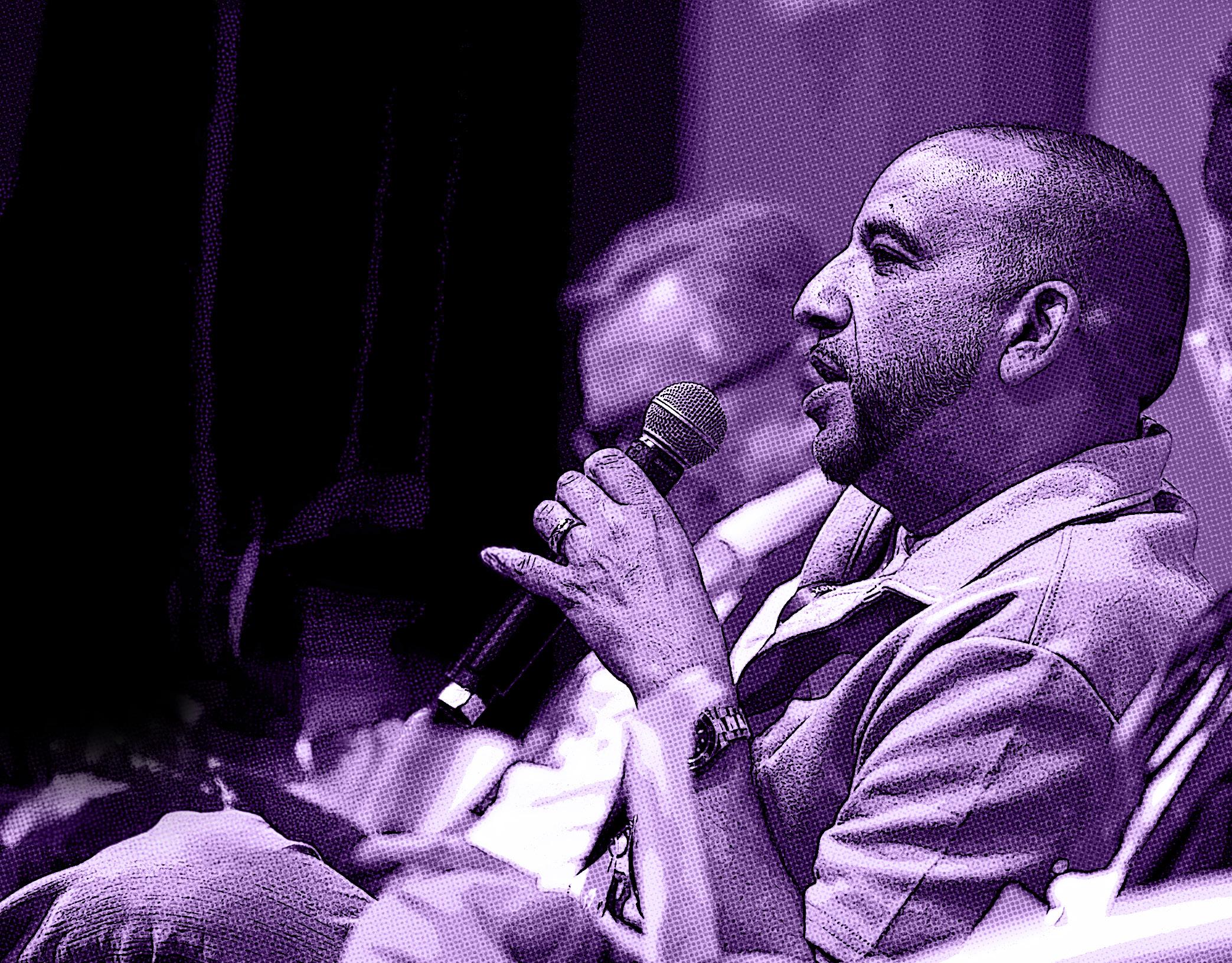
Beyond that, operators are also expected to ensure that none of their affiliate partners are working with anyone in the Ontario black market.
“It’s a completely different world,” Lalani said of the affiliate landscape in Ontario. He estimated that, in most other markets, affiliate referrals make up 35-45% of the customer base. In Ontario, the numbers have been much lower.
Across the border in the US, the playbook for affiliates in almost every state is to highlight the sign-up offers. Without that carrot, pushing an operator is tough unless it is a recognizable brand.
And that is what brings this advertising paradox full circle: How does one get a recognisable brand without television
advertising? Zvilna noted that of the first $79m in advertising spend in Ontario, $75m of it was spent on TV ads.
Lalani, on the other hand, is sceptical of what TV can offer and wonders instead if there are new, innovative affiliate-style deals that provide more bang for a sportsbook’s buck. He threw out the example of working with a Winnipeg Jets fan page or other localised groups as an effective way to both target customers and show community involvement.
With Alberta planning to open up its regulated market imminently, there will be even more wrinkles, regulations and TV advertising puzzles to deal with. But there will also be opportunity. And, if it is anything like Ontario, that opportunity is worth the difficulty of figuring out a way to build a brand through a tactical marketing approach.



Words by - JUSTIN BYERS -
Affiliates by definition are incentivised to chase high-value players for their operator partners, yet responsible gambling duties loom large. Affiliate Leaders examines how important it is to balance revenue maximisation and responsible gambling.
Gambling operators and brands have a responsibility to provide a safe and fair environment for eligible players. A major revenue generator for the gambling industry is affiliate companies and programs that are delivering new customers to licensed operators.
Jurisdictions that have authorised various forms of state-sanctioned wagering are required to adhere to specific regulatory policies and standards to ensure safe play and fair marketing practices in the affiliation space. Some businesses that focus on affiliate deals in gambling are now going the extra mile to separate themselves from the rest of the pack.
“Affiliate companies play a crucial role in the gambling ecosystem and have a significant responsibility to promote safe gaming practices,” Betting Hero Co-Founder Jeremy Jakary tells Affiliate Leaders. “Affiliates should only partner with and promote gambling operators that are licensed and adhere to responsible gaming standards. This ensures that users are directed to reputable and safe gambling platforms.”
Affiliation-focused companies such as Betting Hero are taking matters into their own hands to implement adequate responsible marketing practices that encourage sustainable play. The marketing practices provide fair play but also an entertaining experience for players.
“Promoting responsible gaming significantly enhances the user experience by ensuring that gambling remains a fun and enjoyable activity, free from the stress and worry of potential financial issues,” says Jakary. “When users have access to responsible gaming tools and resources, they are less likely to develop problematic gambling behaviours.”
A key factor in maintaining a safe playing environment while deploying responsible marketing practices is education. Educating players old and new through responsible marketing is integral to navigating the complexity of a dynamic gambling industry.
“Education is a cornerstone of our approach,” says Jakary. “We provide comprehensive information about the operators’ platforms, including details on lines, odds, limit-setting features, and withdrawal methods. Our Heroes [employees] are trained to guide customers through these features, ensuring they understand how to use them to manage their gaming responsibly.”
Affiliate brands and operators providing education and resources are also taking responsibility for the promotion of responsible gambling and marketing practices.
“Where an operator provides wellpresented and simple-to-use tools, as well as relevant information about how to seek help, the operator’s own commitment to RG practices, and also what RG demands of you as a player, this will for certain drive immense brand value over time. Making an RG feature throwaway or badly presented will result in all of the downsides,” adds Circle Squared Partner Mick d’Ancona.

Social betting platform Kutt is proactive in implementing responsible marketing practices. The peer-to-peer betting platform ensures it advertises to users of eligible age and intentionally avoids partnerships with brands that have a young demographic. Kutt also takes a unique approach by providing users with direct access to CEO Sim Harmon.
Betting Hero is also deploying responsible marketing practices by taking the time to explain its terms and conditions to customers. Betting Hero believes its commitment to transparency prevents misunderstandings and fosters trust between customers and the company.
“Affiliates should ensure that all promotion materials are accurate and do not mislead users about promotions,” says Jakary.
Making an RG feature throwaway or badly presented will result in all of the downsides
Affiliate brands are also looking for gambling-related companies to collectively do more.
There are calls across the industry to provide more comprehensive self-exclusion programs that are easy to access and use. B2B sportsbook technology company Sparket has built its proprietary RG features directly into its product providing self-exclusion capabilities and wager tracking. A move other gambling brands may make.
The proper training of staff and their leadership is also a key cog in ensuring responsible marketing practices in affiliation by providing support and guidance to players. Staff members are then given the responsibility to educate on best RG marketing practices.
Clear and concise messaging that is delivered in appropriate forums is a responsible marketing practice that has elevated in importance for affiliate brands and operators.
In 2023, Fanatics Sportsbook violated Ohio gaming law offering a promotion in the Buckeye State that saw patrons rewarded with a bonus bet equivalent to the cost of purchased merchandise. The violation led to an inquiry by the Ohio Casino Control Commission that determined the promotion defied two separate sections of state regulations.
Affiliate brands have taken note of Fanatics’ mishap to prevent similar occurrences.
Affiliate and gambling-related brands have also been called to consider marketing that emphasises a fun experience over financial gains. Several companies in the space believe marketing gambling as entertainment prevents customers from relying on it financially.
Affiliate brands in gambling will continue to develop innovative responsible marketing practices and as the industry grows the importance of protecting customers will increase.
“No matter what anyone says, promoting responsible gambling — at least in its barest form — is not a heavy burden and if people are genuinely worried about the impact to revenues of sticking some signage and information on their website and landing pages then I think they’re proving the point of the responsible gambling lobbyists,” says d’Ancona.
QiH Group Chief Operating Officer Andrew Lee tells Affiliate Leaders how the group approaches new market entries and offers insights into what he describes as the most enticing markets in the world.
Words by - CHARLIE HORNER -
s technology, communications and transportation become increasingly advanced, the world becomes a much smaller place. As such, the opportunities that igaming companies have to explore new territories and capitalise on new markets have never been bigger. And where operators go, affiliates tend to follow.
Andrew Lee is charged with leading QiH’s expansion, and with new regulated iGaming markets surfacing, it is essential that affiliates have a strong plan for their expansion. Lee outlines that before entering a new market, an affiliate such as QiH Group will lay down an important amount of groundwork.
“I think a lot of the approach we take is around the partnerships that we have. Obviously we have existing partners that we work with in other markets and they’ll be doing their preparation. It’s important that we stay tuned in with the guys that we work with, so our teams are constantly liaising with their counterparts on the operator side.”
So, where are the most enticing regions in the world in Lee’s personal opinion? He selected a range of geographies at varying stages of their regulatory life cycle.
Despite market consolidation and the reinforcement of the FanDuel/DraftKings dominance in the US, Lee still sees North America as a key place to do business in 2024 and beyond. This is despite the departure of several brands from the US in the last year, including Unibet and Betway. As tier two operators seek to gain market share on the dominant duo, affiliates can play a key role in sending additional traffic. Lee stresses that affiliates can therefore be an essential tool in the armoury of these operators.
“You see figures like a $40-$50bn market over the next few years and it presents a massive opportunity for the likes of QiH and others. I’m sure you have the next level of operators, like PENN, BetMGM, Caesars, etc., all looking for traffic opportunities over the years, as they try and take some market share.”
Latin America has long been regarded as the next big region for iGaming growth, and it appears that it will be 2024 when that ambition is realised be when that ambition is realised. As Brazil and Peru both establish regulatory frameworks, igaming operators and affiliates will be looking towards LatAm for expansion in the coming years. In Brazil particularly, where there will be plenty of opportunities to take players from the grey market into the regulated space, affiliates will have a big part to play. The
federal betting marketplace in Brazil is expected to launch in early 2025 after seven years of wrangling and delays.
Lee outlined: “In LatAm, and particularly the likes of Brazil and Mexico, there’s opportunity for us as more regulation opens up. We can solve some of the challenges by bringing the right level of expertise into the business as we scale to realise these new opportunities. Specifically for LatAm, where we don’t have that initial footprint, we look towards where we can bring it in or how we can upskill the existing team or part of the business to make an early impact.”
Another market being monitored with interest is Finland, which is set to open a more liberalised igaming market as early as 2027. In anticipation of this, QiH Group would lay down the groundwork in advance to ensure it has the correct data and knowledge in place to maximise its chance of success, should operators be permitted to partner with affiliates as part of the new legislation.
Here, Lee asserts, partnerships are essential and QiH is always talking to existing and potential partners to assess how ready the firm will be for any potential new market entry: “We assess who else could we be speaking to who we don’t currently have a partnership with,” he explained, “to allow ourselves to get into a strong position, where we are then able to take advantage of any strategic opportunities that may arise.”
While looking at new markets is of course an exciting proposition for any affiliate, it is perhaps more important to adequately plan out how to make the most out of those new geographies. Whether it is filling a gap in experience or acquiring staff who know the local language, without preparation, an affiliate is doomed to fail in new geographies.



That is why QiH has hired a new CMO in David Murphy, who has vast experience in taking businesses into new markets, whilst promoting Lee to the COO position.
Lee outlines that strengthening the business’ C-suite was an essential part of its next phase of growth.
“We identify what we need, things like language translation, and local knowledge, or people that have got the ability to unlock that local knowledge. You can’t just take everything that we’ve done in the UK or overseas territories and just apply that textbook approach.”
Lee then emphasises that QiH is a datadriven business that is seeking to learn as much as possible before entering any new geo.
Firstly, and perhaps most importantly, is knowing the local language of the particular market. This is particularly important as QiH goes into Latin American markets, where the requirement for localised content is profound.
But perhaps more important than any other factor, QiH is pertinently aware of the regulatory framework in each market and Lee remarks that abiding by regulations is one of the most crucial parts of success.
Regulation is constantly evolving, especially with new marketing regulations in places such as Germany, and new frameworks being established in LatAm, so QiH is aware that it must keep up with the latest developments.
Other markets such as the Netherlands and Belgium are notoriously becoming difficult to advertise in due to heavy marketing restrictions.
Ultimately, Lee notes, it is about maintaining and strengthening strong relationships with operators and delivering sustainable growth.
You can’t just take everything that we’ve done in the UK or overseas territories and just apply that textbook approach
“ “
He concludes: “It’s not something that we do to pay lip service to our partners. We make sure that throughout everything we’re doing we have that compliance factor in mind.
“We don’t want to jeopardise any strong relationships that we have, so we spend a lot of time training internally so that we can emphasise the value of compliance to our partners as this helps to build trust.”



Words byCHARLIE HORNER -
Floris Assies, Founder and CEO of Better World Casinos, puts forward the argument that affiliate marketing should not solely be about profit, but instead promote ethical values and ESG principles.
The affiliate marketing model has been long established and, aside from technological advances, has rarely changed. Affiliates review and promote casinos and sportsbooks, then receive a fee for directing players to said operator. It’s a core part of the industry and, done right, can be a proven moneymaker.
But, is the only indicator of a successful business the bottom line? Floris Assies, Founder and CEO of Better World Casinos, argues that there is much more to success than pure profit. Instead, the industry should be more focused on serving environmental, social, and governance (ESG) principles.
“Since the Second World War and especially since the rise of neoliberal capitalism in the 1980s, business has been focused on free markets and profits,” Assies tells Affiliate Leaders.
“I tell the story of, for example, if Brand A does something better on ESG when it comes to player protection, how it treats employees, Corporate Governance and where they pay their taxes, etc, compared to Brand B which doesn’t budge. If players’ value for money and experience is the same, then why wouldn’t they choose Brand A over B. That way, players can also have the feeling that they are having some impact on the world.”
Better World Casinos seeks to fill a gap in affiliate marketing by reviewing operators based on their ESG principles which gives players a different perspective on the casino compared to traditional affiliate content.
Assies argues that not only is this process good from an operator’s marketing perspective, but it varies up the content in the affiliate space as he determines “the fact is that most casinos offer the same experience, they have the same games from the same providers. From a player perspective, there’s not much difference.”
His passion for ethical and sustainable practices in business comes from over two decades of travelling around the world, both for work and leisure and seeing real poverty and the impacts of pollution in places such as India and China.
Seeking a better future world for his daughter is something that drives Assies, and this influenced the launch of Better World Casinos.
“Having seen quite a bit of the world and witnessed firsthand the mess that we humans have made, I have a strong desire to contribute to making the world better,” he explains. “Sustainability and ethics have been passions of mine since my early 20s.”
Specifically related to iGaming, Assies can identify ethical dilemmas when it comes to revenue share agreements, through which affiliates are, by definition, incentivised to direct highvalue players to operators while knowing that the products can be addictive in nature.
“Players should be free to spend whatever money they want, in whatever way,” he asserts. “But it comes with risks when somebody would spend more than they can afford. As an affiliate, if you can imagine bringing such a player in, it will see your revenue go through the roof.
“But obviously, we see that it has problems for that player and it causes a lot of financial and emotional harm. There’s a very fine balance on how you manage that - you want to protect your bottom line and have a successful business, but you’re offering a product
that, in nature, can be addictive to some people and I think the operator, player and society as a whole should have a responsibility to provide a safety net when these experiences turn bad.”
That is why Assies, via Better World Casinos, is dedicated to giving players as much information about the risks of gambling as possible and ensuring that players are not allured by the hope of winning life changing sums of money. Instead, reinforcing the message that gambling is a form of entertainment.
His affiliate site is dedicated to implementing ethical practices into its own operations. The website is hosted on environmentally sustainable servers, while salaries are capped and charitable donations are made using excess profits from the business as Assies seeks to make a difference to the planet.
But, ultimately, Better World Casinos is only a start up. A drop in the ocean compared to the behemoth that is the online gambling industry as a whole. And Assies is all too aware that more needs to be done on an industry-wide basis to promote ethical practices.
He asserts: “I definitely feel like it’s a box-ticking exercise for a lot of companies and I feel that it’s moving very slowly. Besides, some are trying to do the right thing for the wrong reasons.
“There is a lot of greenwashing going on. People think my story is very nice but in the end, making an investment on ESG and doing things differently has an impact on the bottom line and profits. So, companies need to decide if it is worth the hit, and we see very little progress.”
While challenging the industry to do better on ESG endeavours, Assies remains optimistic as the ESG space remains a nascent industry that consumers and businesses are still learning about, and he hopes that improvements will be made in the future.
I think the operator, player and society as a whole should have a responsibility to provide a safety net when these experiences turn bad

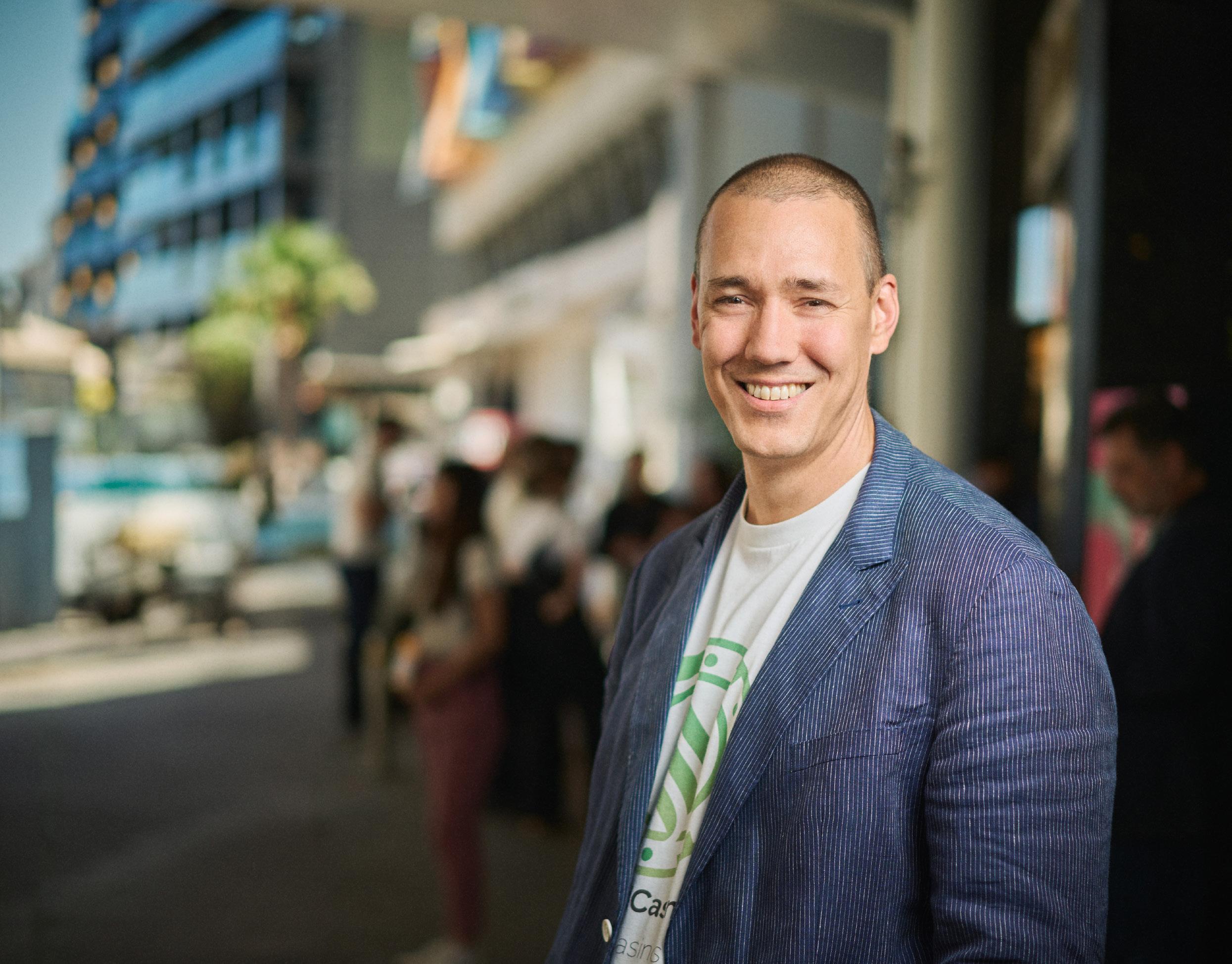
Assies and Better World Casinos has the ultimate goal of driving that change in the iGaming industry by taking the initiative and leading by example.
“The fact that most companies have made profit their primary goal is the reason we have big inequality, pollution, and all the social and environmental problems we are facing,” he notes. “I think we have to help make the consumer aware of the challenges and the impact their choice of brand has and lead by example.”
Assies concludes: “This is why we aim to become a B-Corp and already have a number of principles in place to ensure we are not looking at growth at any cost or have profit be our sole driver.”







Vasilii Gamov, Chief Executive at marketing agency PeakyAds, explains how the firm advises its clients to have a winning SEO strategy and overcome some of the industry’s biggest challenges.
My approach to building trust is sharing knowledge
ffiliate Leaders: Tell us about PeakyAds. Who are you and what are your core competencies?
Vasilii Gamov: PeakyAds is a marketing agency founded in February 2024 that provides a full range of marketing services. We provide services relating to copywriting, sales, design, media buying, PR, SEO, and SERM. We work across several niches including iGaming, fintech, e-commerce, education, health, and beauty. Our favourite marketing channel is SEO and we have a lot of projects in this channel with affiliate marketing companies in the iGaming sector.
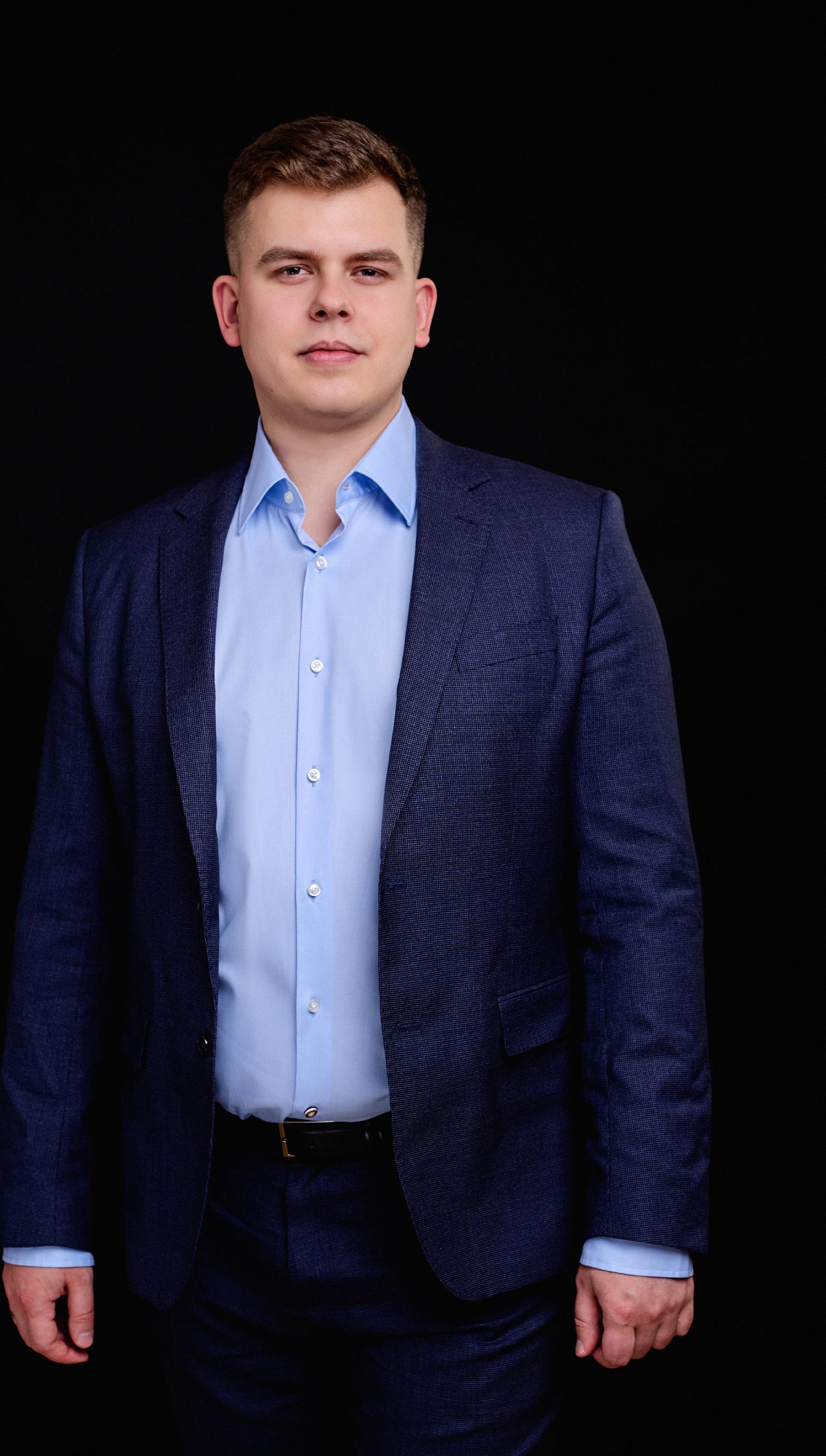
This is all possible because I have around 15 years of professional marketing experience. I have run my own YouTube Network and been Chief Marketing Officer at several huge international companies before setting up PeakyAds. I also got five awards for companies I worked for and two personal awards during the last year. The last one was from the Cases&Faces award in Miami, USA: Marketing Executive of the Year. My team is also very experienced, they have been working in the marketing, design, SEO and PR space for ages, so we can cover almost any need in the market.
AL: Let’s talk SEO. What is PeakyAds’ SEO strategy and how do you help your clients?
VG: The best way to work varies from client to client. Firstly, we talk with the client, we figure out their needs, what they want to do, and in which markets. Then, we generally follow three steps:
• Conduct a tech audit: We audit our prospective clients’ websites to work out the bottlenecks and decide what we need to improve and what we need to create. Once we do the audit we can discuss with the client what they need to do because there can be a lot of bottlenecks. For example, they might not care about site loading speed, correctly written headers and meta tags, correct site internal site linking, good backlinks, correctly composed robot.txt file, alt tags for images, and much more, simply because they do not know how important it is for Google.

• Fixing the client’s issues: Some clients are ranking to an extent with their SEO strategy and others we must begin from scratch. Some clients have good brand protection while others are getting their traffic stolen. While some clients are interested in brand protection and scaling current projects, others are going to launch new content projects like satellite websites or industry media. This means that all clients are different and we cover any need and work in different ways.
• Create content that maximises organic traffic: Once the plan has been outlined, we then analyse Google queries, and competitor websites in the niche to see what type of content and what SEO strategy will bring the most organic traffic and create a content project for that. What you need to have with any SEO website is a good structure with some good spreadsheets, good content, good optimisation and good download speed, which is enough in most cases to start ranking.
PR and SEO is an effective and cheaper way to generate traffic compared to media buying, for example. In my experience, long-term PR and SEO can be 10 times cheaper than media buying, so if you do it correctly, you can generate traffic and save money.
AL: How have you managed to overcome the challenges set out from this year’s Google updates and how do you advise your clients?
VG: If you’re smart enough, have enough investment and would like to use white hat SEO strategies, then in my experience, you should have few bad results from the Google updates in March. What I have seen across several projects is that if you work with them in a good way, ie. not using blackhat technologies and only carefully using backlinks, then those projects still rank. It’s much better to buy fewer backlinks but on sites that have good authority.
That brings me onto the next point. Google takes into account the authority of the editors and writers more than ever. I recommend having a special section on your website detailing your writer’s experience and authority on your niche. The author should be mentioned on every article page, not even on your own website but also perhaps on other websites too. Writers should have strong LinkedIn profiles with lots of followers to
enhance their presence even further as Google really values authority writers.
It’s also important to create localised content. For example, if you are creating content for the affiliate market in Brazil then you must have a Brazilian domain and write in Portuguese language. It cannot just be translated from English or Spanish into Portuguese as it isn’t properly catered to the Brazilian audience. Those who have a proper localisation strategy and have used it for a long time will rank higher.
AL: How does PeakyAds build trust with its clients and showcase its work to new clients?
It all goes back to why we started the business in the first place, and this was to help some friends and colleagues who needed these services. I began the agency just with this approach in mind and then it has grown and grown ever since. Now, we have a lot of clients from all over the world and we have experienced a lot of organic growth; we haven’t invested much. It’s been through friends, networking at conferences, webinars, panels, and speeches.
My approach to building trust is sharing knowledge. I believe that is the most effective way to attract clients to your business. And it’s the most healthy way to attract clients in your business. For that, within Peaky Ads we already launched a YouTube channel with expert talks, actual topics about all marketing channels, events, and so on. Also, a text blog is on the way.
AL: What is in the pipeline for the next two years? What are PeakyAds’ biggest ambitions?
Right now, we are very strong in the iGaming vertical, also we are investing in several personal brands. We have clients in the affiliate space, in the education sector and also we do fintech projects.
I believe we will use our expertise in other sectors though our strength is in iGaming, finance, and education and we also want to expand in the US.
I also believe we will only be a marketing agency in one year, but we’ll also be a media agency. We’ll have our websites within ecommerce, education and other white hat industries in the US.


Better Collective Senior Director of Merger and Acquisition Rory Raine pulls the curtain back on the affiliate giant’s M&A strategy and notes how recent acquisitions have helped the firm gain ground in new markets.
Words by - CHARLIE HORNER -
Better Collective has been one of the more active M&A affiliates in the world since adopting its latest strategy in 2017. Since embarking on an M&A journey seven years ago, the Copenhagen-headquartered affiliate has acquired over 30 businesses, making it one of the largest companies in the space with a truly global footprint.
Since 2021, Rory Raine has been one of the key decision-makers at Better Collective when it comes to its acquisition strategy. As Senior Director of M&A, his responsibilities are all across the full acquisition cycle, beginning with the initial prospecting of potential targets, right down to the nitty-gritty of completing due diligence and integration planning.
Ultimately, Raine carries out the firm’s M&A strategy which seeks to fulfil its ambition of becoming the “leading digital sports media group”.
“Historically we wanted to complete a roll-up of affiliates, mostly in European markets to gain scale,” Raine explains. “Since 2020, we set out to own more of our audience beyond SEO and have acquired leading sports media brands in markets where we could maximise the synergies with the performance marketing model on top of advertising and direct sales.”
So what exactly does Raine’s job look like? As one can probably imagine, a lot of due diligence is undertaken to find the right fit for Better Collective’s top line and culture.
We have become one of the favourite acquirers for sellers within the digital sports media landscape
Raine remarks: “We take a long-term view of our business and our focus is on finding the most interesting acquisitions and perfecting the underlying processes. Ultimately when we make an acquisition, we want it to add value as quickly as possible, but in a long-term sustainable environment.”
And this ethos of rigorously researching and looking under the hood of these businesses means that not every lead is followed and executed as an acquisition - sometimes they result in a commercial partnership instead.
“Every business is different,” he outlines. “Some are established with an exit strategy and easier to imagine M&A being relevant. Others are completely founder driven where a sale has never been contemplated. Being comfortable with not acquiring a business at a certain point in time is as important as knowing when it is the right time to make a deal.”
Nevertheless, the company has been prolific on the M&A scene in the last few years, notably by completing headline deals to purchase Playmaker Capital for around €176 million, which has significantly boosted its presence in Latin America. That deal, as a recent example, had already delivered over €7 million to the firm’s top line as of Q1 2024.
Raine explains that the Playmaker Capital deal, amongst other American acquisitions such as Playmaker HQ, has helped it to access new geographies more easily, as well as achieve the ultimate goal of being a leading digital sports media firm.
He also points towards another acquisition which helped in this regard and propelled the firm’s ambitions to enter newly regulated markets.
“M&A is a major part of our strategy and allows us to quickly enter new markets when we see the opportunity,” he notes. “There are many examples of this, but Soccernews.nl was the first acquisition made when I joined BC in 2021. We acquired it just prior to the eventual regulation in the Netherlands. It was a wellknown brand that enabled us to command budgets from the sportsbooks that were able to go live in the first wave of licensees.”
Being such an active participant in the M&A market in recent years
has earned Better Collective q uite the reputation amongst business owners in the digital sports media space.
Raine claims the company receives “a great number” of proposals from business owners looking to sell out. This offers Better Collective a wider choice of which firms to buy, meaning its target list is constantly changing.
He notes: “I think it is fair to say that we have become one of the favourite acquirers for sellers within the digital sports media landscape. We take a long-term view of our business and our focus is on finding the most interesting acquisitions and perfecting the underlying processes. Ultimately when we make an acquisition, we want it to add value as quickly as possible, but in a long-term sustainable environment.”
The last few years have been very busy for Raine and the entire M&A decision-making team at Better Collective, as the firm has swept up over 30 companies under its umbrella.
From the outside, it doesn’t appear that the firm is stopping any time soon, either. In February 2024, the affiliate announced an initiative to issue new shares to raise around 10% of its total capital. This capital, leadership told investors, would be for future M&A activities as it seeks further growth.
However, Raine cannot comment on specifics or any new targets, but his confidence in Better Collective’s processes means he can wait until the right deal comes at the right time.
“We believe that we are in a very strong position in the market and will only look to make investments that will further enhance that,” he concludes.
As millions of Gen Z consumers reach the legal gambling age across the world, it is essential that operators, affiliates and suppliers develop a strategy to reach next gen audiences. But how? A panel of marketing experts explore this challenge in further detail.
Words by - CHARLIE HORNER -


Generation Z is coming. No longer are the cliches of the young centred around avocado on toast, high street coffee subscriptions or Netflix. Instead, the younger generation, who are approaching if not already of legal gambling age, are commonly associated with being screenobsessed with much shorter attention spans. Primarily though, and pertinently for gambling, entertainment is essential for Gen Z.
The generation born between 1997-2010 will define the marketing strategies for operators, affiliates and suppliers for the next decade and beyond, and all stakeholders must tailor their strategies to account for this.
It is worth taking a look at some of the key consumer habits of Gen Z. Per several consumer insight studies, Gen Z:
• Are digital natives, with 98% of the population on social mediaparticularly on TikTok and other short-form video platforms.
• Are committed to ESG initiatives and will make choices of what brands to shop with based on their diversity and approach to representation.
• Are liable to peer pressure.
• Are heavily influenced, with a PYMNTS. com study finding that Gen Z are 117% more likely to shop online using influencers.
For Andy Mace, Head of Casino Personalisation at Sportradar, companies should already be adopting a digital first approach to marketing if they want to succeed with newer players.
Mace says: “This generation is the first digital native generation and, interestingly, they make up about 30% of the population. For this industry, they are the next generation of bettor, so I think adapting your strategies to this generation is absolutely key because they’re different to previous generations and generations to come as well.”
Mace explains that, within his role at Sportradar, he must be switched on to data to adequately personalise experiences for players. Increasingly, AI is being utilised to carry out this
data analysis, and Mace argues that AI is the present and has to be leveraged now.
“This (generation’s) player behaviour is a complex situation,” he asserts. “It’s not enough now to use Google Sheets and Excel to look at players, you need to dive deeper. AI is a buzzword at the moment, but it’s absolutely critical to do that.”
Given the statistic that Gen Z are almost universally on social media and that shortform content is now used prevalently, it is argued that casino brands and affiliates must be placing ever more emphasis on these platforms to attract Gen Z audiences.
Liliana Almeida, Head of Brand and Corporate Communications at Clever Advertising, notes that Gen Z is the first generation that views social media as both a marketplace and source of entertainment. She stresses that these audiences are seeking community, trends and information but also in-app purchases and shopping options.
All this means that social media has the potential to be a treasure trove for affiliates. However, for Clever Advertising, an affiliate partner of several leading operators, there are concerns over compliance when using social media.
“For us, our main challenge is the regulations and restrictions on each platform,” Almeida explains. “So we cannot communicate and engage as freely, because influencers will be shut down, accounts will be shut down, and there are legal restrictions.”
However, adopting a sensible strategy, fueled by data-driven insights, can reap rewards for those seeking Gen Z users. Almeida highlights the importance of following where the audience is.
“The learning curve that we are witnessing is how to apply and how to change and adapt the buying curve, the cycle, the funnel, because it’s not the traditional one anymore.”
Having the right streamers directed at the right audience is absolutely key “ “


Whether we like it or not, and whether we understand it or not, influencers are big business and streamers are more popular than ever. Michael Pedersen, CCO at LiveSpins, cites that on Twitch and Kik combined, over 620 million hours of content were consumed in 2023.
Pedersen also notes that his own children are more interested in streamers and influencers than other forms of entertainment, remarking “my daughter refuses to watch TV. What she loves to watch is YouTube and other people playing with toys as opposed to her playing with toys.”
Increasingly, gambling companies are selecting influencers to be the face of marketing campaigns and streamers to showcase their products to Gen Z audiences. While a lucrative prospect, Mace warns that simply choosing any old influencer simply isn’t sufficient.
“Having the right streamers directed at the right audience is absolutely key,” he says. “Because if audiences see an ageing football star recommending a game or a casino, they’re probably going to go ‘Who is that? That looks like my granddad or something.’”
Adequate vetting of any partner is essential, not just from a relevance perspective, but also from a compliance view, argues Almeida. Clever Advertising, she explains, has a four-pronged approach to influencer marketing, which includes the scouting process; planning the campaign; testing and comparing and then control results and performance analysis.
“We have to match the influencer with the brand persona, it has to be a match for the content to be fluid and seamless,” she asserts. What is clear is it is essential to any successful campaign to have the right influencer for the right scenario, otherwise, it is wasted advertising money.
Affiliate Leaders enlists the help of two industry CEOs to decide whether hybrid deals, blending both CPA and Revenue Share deals, can be a long-term solution.
Words by - CHARLIE HORNER -
For any affiliate, deciding on a business model is integral to ensuring long-term success. While CPA models seem to be the most popular form of doing business as affiliates enjoy the up front fee, there has been a steady increase in revenue share deals in which the operator pays the affiliate for the entire LTV of the player.
Yet, there is another way of operating as an affiliate. There are some who are seeking to obtain a hybrid model of revenue generation, by which the operator and affiliate agree an up front CPA fee, followed by a revenue share for the LTV of the player. Of course, under this model, both fees would be lower than if the affiliate agreed either a CPA or rev share deal, but there are proponents of the model.
Alina Famenok, CEO of Already Media, told Affiliate Leaders that the hybrid model is her company’s favoured route of doing business.
“Having a hybrid model mitigates risk on both sides,” Famenok explains. “Lower individual CPA and rev share rates balance things out and ensure one is not overly reliant on just signups or just revenue. Meanwhile, operators can also reduce costs with lower CPAs while still motivating the affiliate to drive player value.”
Both CPA and revenue share deals have significant benefits and drawbacks for both the affiliate and operator. With this context in mind, it may be sensible to come round the negotiating table and negotiate a compromise. In Famenok’s view, the hybrid model is just that.
“A hybrid model that blends both approaches is a good route to take. The affiliates receive an initial payment for each acquisition, giving us more early cash flow. We’ll then receive a percentage generated by the player over time, incentivising us in a number of different ways, like sending quality traffic, having more security to invest into our campaign, and working to help with retention and LTV of the player.”
But, just like most things in life, things just aren’t that simple.
Tom Galanis is the CEO of UKbased affiliate TAG Media, which opts for a “sensible blend of
CPA, rev share and hybrid deals’, depending on the specific context of the deal.
However, Galanis notes, while hybrid models bring significant opportunities to all parties, it is not always an easy compromise to make. Primarily, in Galanis’ view, affiliates tend to lean towards CPA deals much more often.
“If affiliates are buying traffic, they’ll need to see ROI as soon as possible, CPA obviously achieves this,” he outlines. “An ever increasing reason is reduced trust in the stability of both an operator’s future and indeed that of the market they operate in.

I feel that hybrid deals will become more popular as affiliates continue to grow in importance

“Receiving commission up front mitigates against this risk, but, if your traffic sources are sound, this can generally reduce both the total earned per player on average and you’ll lose the incremental recurring revenue.”
Galanis likens the way an affiliate spreads out their deals to the way one would spread their investment portfolio as a means of reducing risk. Per his metaphor, those partners who are trustworthy and are likely to lead to a sustainable source of revenue should be on a rev share basis and these are likely to be with tier one operators.
Those in the mid-tier should account for around a quarter of live partnerships – these may be groups who are long established, but perhaps launching a new brand or entering
your market – for these a mix of hybrid, revenue share and pure CPA can work.
Finally, Galanis identifies the riskier deals as those with brand new entrants with a budget to spend to meet high growth targets. He warns: “You know you’re running the risk of getting your fingers burned, so where possible, a pure CPA or heavily CPA weighted hybrid makes sense.”
Ultimately, the deals that operators and affiliates choose depends on the levels of trust between both parties. Building trust is essential to success for both parties, but sometimes can be difficult to find.
Famenok explains: “It’s a small industry, so your reputation is very
easy to spoil. For us as an affiliate, that means keeping true to our word and acting with integrity.
“We build relationships with our key partners, ensuring full transparency. Sharing our numbers and projections. Clear and accessible tracking and reporting tools so there’s transparency on performance helps to cement trust.”
Galanis echoed these sentiments that trust is key, as is transparency, to build long-term trust. But could the result of long term trust be that affiliates and operators find mutually beneficial hybrid models to work on together? Is it really possible?
TAG Media’s CEO is unsure. He opines: “Unfortunately, I can see no real signs of the macroenvironment supporting any desire for deeper partnerships between affiliates and operators on the whole. Like everything in life, generating traffic is becoming more and more expensive and so affiliates will need to invest more up front to compete – and even smaller operations will need to mitigate against cashflow concerns with CPA deals.”
However, as a fierce proponent of the hybrid model, Famenok is slightly more optimistic that the hybrid model is here to stay.
She concludes: “I feel that the deal will become more popular as affiliates continue to grow in importance, in particular markets. Remember, this is a deal structure favoured by affiliates, not operators. So, it’s one that can only usually be negotiated when affiliates hold more weight at the negotiating table.
“But I predict that access to hybrid deals will become easier for some affiliates, like us, who continue to build our reputation as a dependable partner.”

Vanda Silva, Chief Corporate & Commercial Officer at Clever Advertising, assesses the key challenges that a company may face when expanding their international footprint and how focusing on happiness can pave the way for new growth opportunities.
At every industry conference throughout 2023/24, there has been at least one - if not, several - panel sessions dedicated to the prospects and trajectories of iGaming markets around the world. What will be the next market to regulate? What do new regulations mean for growth opportunities? Where will the next gold rush be?
The list of questions is endless. And as an affiliate with a global presence, we of course have a vested interest in understanding where the biggest opportunities for expansion are.
Traditionally, Clever Advertising was always a European-focused company, with our HQ in Malta as well as our flagship office in Porto. These two hubs have been the heart and soul of Clever since they opened their doors, and have played an integral role in bringing our team together.
But our ambitions don’t end in Europe. Latin America first caught our attention in 2015 and has been a huge growth opportunity for us. Then in 2020, we then set our sights further afield to the opportunities in Africa and North America, followed by Asia in 2023. Today, we’re now active across five different continents, with a team of approximately 300 people. We generate more than 22
billion curated and selected impressions to our partners each year, resulting in more than one million new customers.
On paper, having such a global presence does in fact make us a ‘global’ affiliate. But from an operational and human resourcing perspective, what does it actually mean to be a global company?
Going above and beyond
As with any company, international or not, having the right team by your side is absolutely essential. But as a business begins to scale, you need to not only make sure that your team feels represented by the values you promote, but that they also feel engaged with the business. This is much easier said than done.
The challenge that many companies operating on an international scale face is maintaining a sense of company culture, despite their teams being spread around the world.
One of the greatest challenges is ensuring that we continue to deliver on our commitment to make Clever Advertising the best place to work in the iGaming industry for all of our employees regardless of where they are based.
A standard package of benefits is not sufficient to show our team how much we appreciate them “ “
There will be many companies in our industry who will attempt to elevate the day-to-day experience of working for their company by rolling out a series of benefits to employees. Whether it’s casual fridays, a pension scheme or even team day outs. But at Clever, we believe that you must go one step further if you want to create a true community.
You’re probably asking yourself, what does that even mean? Well, to us, a standard package of benefits is not sufficient to show our team how much we appreciate them.
So, alongside the provision of private healthcare, on-site nutritionists and even companywide mental health and wellbeing services, we have made the conscious decision to focus on internal mobility as well as the provision of workshops and training sessions that allow our team to grow both personally and professionally.
The key consideration that companies need to take when rolling out such benefits to their team is that it is available to everyone in your company, not just those that happen to be based in the company HQ.
For example, the team at Clever has access to a third-party healthcare app which allows them to contact a doctor or pharmacist should they ever need to. However, this app was only available to those based out of the Portugal offices - understandably, this caused some frustration to those based in our Malta office. So, we contacted the app developer, and we are supporting their expansion into Malta so that our entire team can access the healthcare services.
Theoretically, we do not need to do this. But it is absolutely essential for us to ensure that our entire team feels listened to, looked after and happy to work at Clever.
If you cast your eyes back to the pandemic, and everyone was working from the confines of their own home. Looking back, it seems like something from a sci-fi movie, where we were unable to interact with other human beings, aside from the occasional video call during the work day.
But throughout this unprecedented time, we found that many of our team had struggled with their own mental health. In response, we established a service that allowed employees to speak with a counsellor or psychiatrist whenever they felt like they needed it.
After a few months, however, our Founding team believed that this service was just one cog in a machine that should aim to keep our team happy. This sparked the creation of Clever Advertising’s own Happiness Department - a service that, as the name suggests, works solely to find new ways to meet the needs of our team members and focuses on employee retention.
I think that it is this Happiness Department that is an embodiment of the reasons why Clever Advertising can be considered a global affiliate, and leader within our space. We, of course, do focus on the commercial side - we are a performance-based business after all! But it is the more ‘human’ side of our business that sets us apart. Because ultimately, it is the people that make a company - and without their hard work and dedication, we certainly wouldn’t be where we are today. And a happy team, more often than not, translates to long-term commercial success.
So, in answer to the original question of ‘what does it mean to be a global affiliate?’, I believe it’s down to empowerment, and curating the right team to drive you forward. It is about working together, and overcoming challenges as one united front. And, most importantly, it is about happiness.
PREMIER SPORTS BETTING & GAMING EVENT
25-27 FEBRUARY 2025
RIOCENTRO, RIO DE JANEIRO
10,000 DELEGATES 250 SPEAKERS 400+ EXHIBITORS
